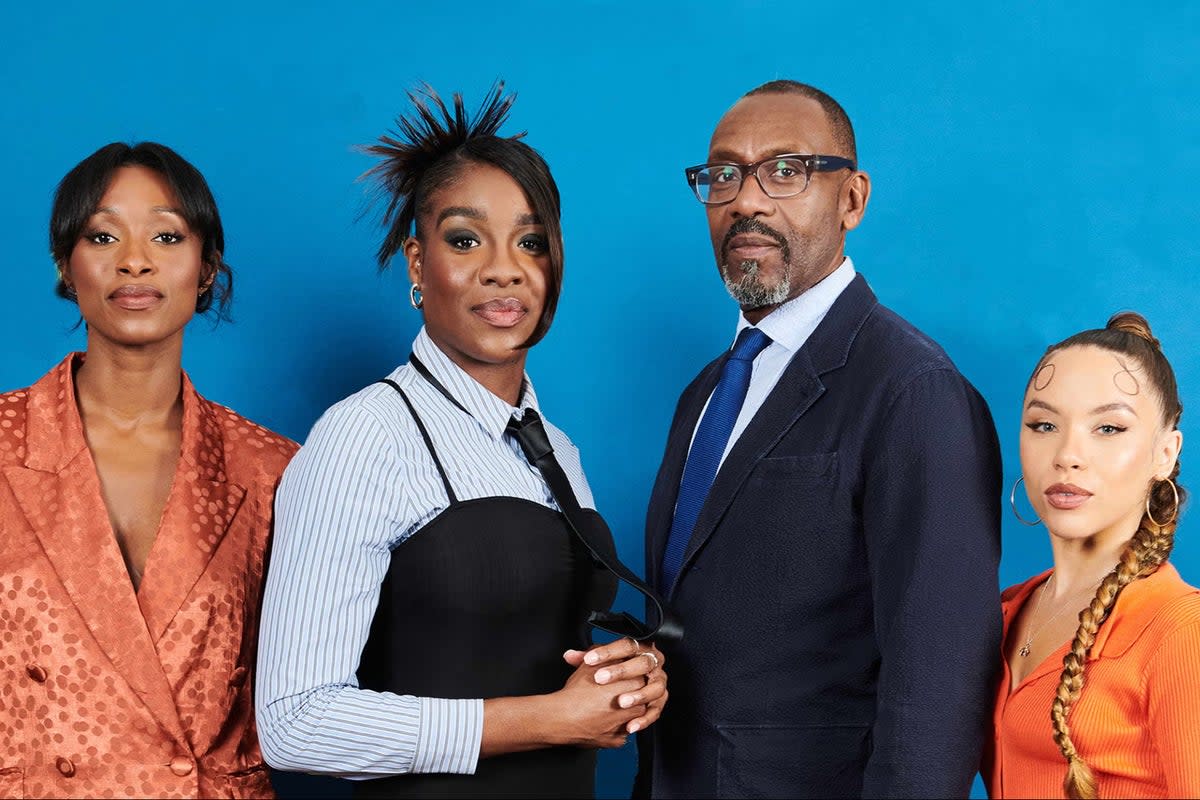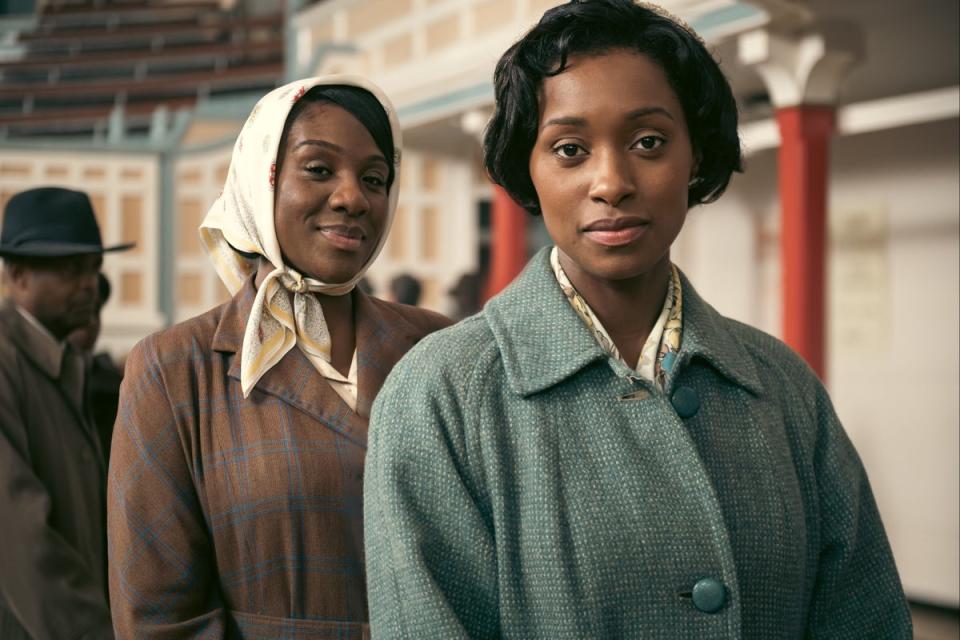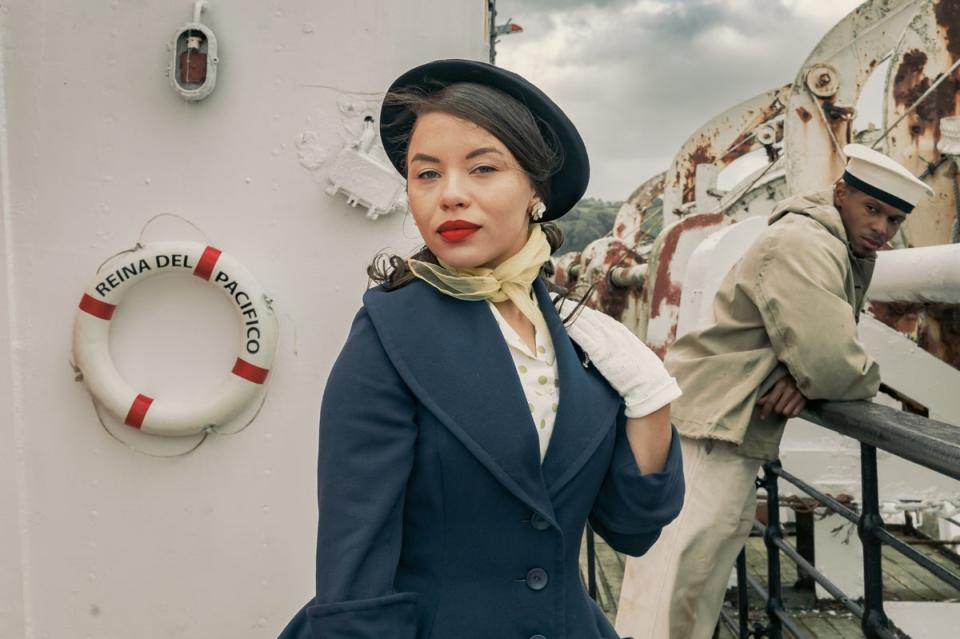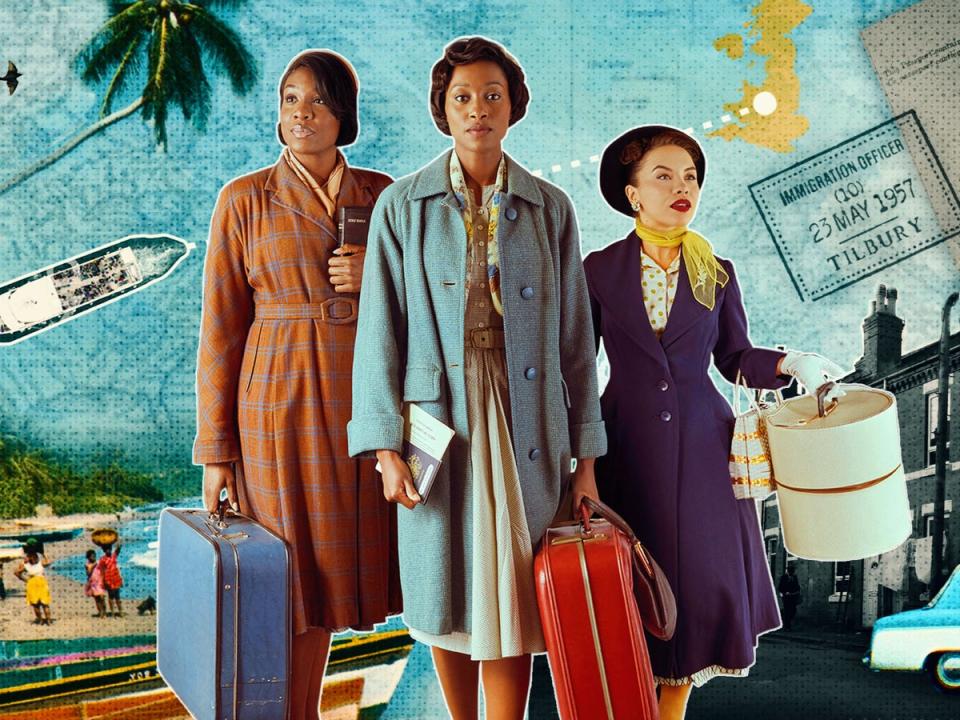Lenny Henry and the cast of Three Little Birds on their powerful Windrush drama: ‘Our long existence here isn’t a fairytale’

Lenny Henry wants you to know that his ITV drama Three Little Birds is definitely not his family biopic. The actor, writer and comedian’s new show centres on a trio of hopeful young women from Clarendon, Jamaica, who, in 1957, make the three-week cross-Atlantic sail to Britain, itching for a new life. Yes, Henry’s mother was part of the Windrush generation that made the same arduous journey in the late Fifties. And yes, she made a new home for herself in Dudley, where the series is set. And yes, she also had to contend with brutal circumstances from the moment of her arrival, thanks to the Mother Country’s failure to welcome her with the open arms she’d expected.
But, Henry protests, this is not his mother’s story. “There are some things that are true, but hopefully I’ve... because my family is very litigious, you see,” he jokes, “I can’t say what they are. I fictionalised a lot of my mum’s and aunties’ and uncles’ stories. But the basic premise, two Jamaican women coming to Britain with a ‘mail-order bride’ friend, that is a kind of truth. The rest is fiction.”
Although Henry’s 47-year career in entertainment has often highlighted Black British experiences, this is the first TV drama he has written, and exploring the themes of Three Little Birds has been a long time coming. Henry’s mother, Winifred, died in 1998. Before she passed, she made a point to tell her son all about what life was like when she first came to the UK. “The way she was talking, it was quite mythical and legendary; it didn’t sound like she was telling real stories, it felt like she was conveying a narrative,” he says. Twenty-five years later, Henry has teamed up with TV mastermind Russell T Davies to put a version of his mother’s stories on camera. Henry plays a cameo role, as a mysterious, runaway pastor back home in Jamaica. But the focus is firmly on the three leads: “The sisterhood who protects each other when no one else will.”
The three little birds of the title are sisters Leah (Rochelle Neil) and Chantrelle (Saffron Coomber) and their friend Hosanna (Yazmin Belo). The trio board the Empire Windrush together, with the sisters hoping that Hosanna will marry their brother, who awaits them in Britain. Each of the women has a specific reason for making the journey. Leah, a sensible mother of two, is running from the pain of her abusive marriage to prepare a new home for herself and her children. For Neil, playing Leah felt like putting her own touch on a side of history that isn’t often told.

“In the UK, we do period dramas really well, but they’re Downton Abbey, or Call the Midwife – it looks a certain way,” she says. “It gets to the point that when you travel, you get people who’ll say, ‘You’re not British,’ because all they see on TV is that British history. It feels amazing to think that there’s a British period drama that’ll have us included.”
Sadly, the three new arrivals don’t even last one day in the UK before they get their first glimpse of racist graffiti, echoing the “Keep Britain White” rhetoric of the time. “Why did I ever come to this terrible place?” Leah asks herself in despair, after a rough encounter with the police leads to a wrongful arrest and a warning for the “darkies” to stay in their place. “I’ll never make a home for my children here.” As much as Neil considered it a privilege to portray a Jamaican in 1950s Britain, similar to her own ancestors, playing Leah took a toll. “When we finished filming, I stayed in Coventry for an extra week because I just couldn’t stop crying,” Neil admits. “I was carrying so much, and it was almost like coming back from war – I don’t know how else to describe it. I was carrying all of Leah’s fears and anxieties, missing her children – I’d just had a baby myself, and it all felt very, very real.”

For Leah’s sister Chantrelle, getting to the UK is the first step towards becoming the next Elizabeth Taylor. With Lady Macbeth monologues memorised and her Rebel Without a Cause poster in hand, Chantrelle boards the steamboat from Kingston hoping it’s just a matter of time before her name is in lights. She takes a job as a live-in nanny with a family in Watford to be close to the studios in nearby Borehamwood, but it soon becomes clear that the road to stardom won’t be an easy one. The severe, disdainful mother of the host family constantly reinforces Chantrelle’s lower status, making her wear unflattering clothes and use a separate entrance to the house, while the father’s initial kindness turns into something more sinister when he tries to enter her room at night. Coomber doesn’t take this role lightly. “What’s so amazing to me is that I’m being able to live the dream that she wanted,” she says. “Were she born now, she’d be able to do what she wanted. I have that access in the way that she doesn’t; for me, that was really precious to protect.”
I hope people see this as a British story, because everyone’s lives changed
Rochelle Neil
The last little bird is Hosanna, a devout Christian with a strong moral compass and an even stronger regard for good manners. Though Hosanna offers the most comic relief, with her stiff upper lip and her immovable beliefs, she never tips into caricature. For Belo, this was a conscious choice. “There were so many phrases and ways she’d express things that are so doused in humour,” she says. “But because of what this story is, and what it’s representing, it was important that I was intentional about her arc, and didn’t make it gimmicky.”
While Three Little Birds stands as a tribute to the struggles of the Windrush generation, Henry hopes that all viewers will be able to connect, on some level, to the characters’ plight. “Surely, everybody understands that,” he says. “If you’re from somewhere and you’re in trouble, and you have to leave – you go somewhere else to survive, to raise your family, to have a better life. Surely everybody can relate to that?”

“I hope people watch it and don’t think of it as a Black story, or a post-Windrush story,” Neil adds. “I hope they see it as a British story, because everyone’s lives changed. Everyone was exposed to new music, new culture, whether you were arriving or whether you were already here. The UK as we know it now would not be the same country if it wasn’t for the immigration that has happened. It’s everyone’s story.”
Belo says the drama highlights “how much we make up the fabric of Black British culture”. “Our long existence here isn’t a fairytale,” she says. “We have existed, and we have been here.”
And despite the differences in all the characters’ own motivations, they’re united in having the courage to take a leap of faith. “We all came for different purposes, but actually, we were all just trying a ting,” Belo laughs. “And the ting happened to work.”
‘Three Little Birds’ begins on ITV1 and ITVX on Sunday 22 October at 8pm


